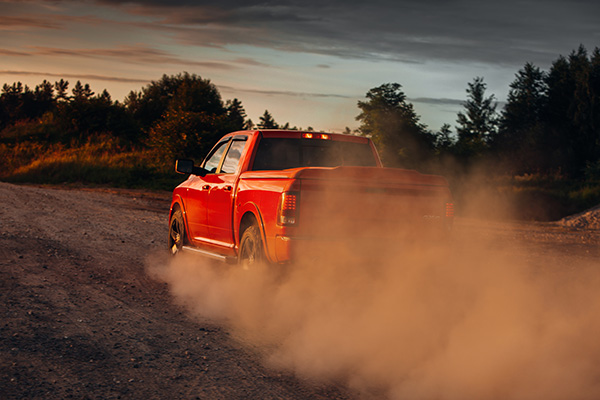
Driving a truck should feel solid and smooth—even during gear changes. So when your truck starts jerking or lurching between shifts, it’s not just annoying—it’s a sign that something may be off with the transmission, drivetrain, or even the engine.
Whether it’s a hard shift at low speeds or an unpredictable jolt while cruising, here are some common reasons trucks begin to jerk when shifting gears and why it’s worth getting checked out sooner than later.
Transmission Fluid Problems
Transmission fluid is essential for smooth gear changes. If the fluid is low, dirty, or the wrong type, your truck may struggle to shift correctly. Low fluid levels can cause gears to slip or engage harshly, while old fluid can lead to internal wear and overheating. Sometimes all it takes is a fluid change and system flush to fix the issue—especially if the jerking just started.
If it’s been a while since your last transmission service, this is a good place to start.
Worn or Failing Transmission Components
When the fluid checks out but the problem continues, it could point to wear in the transmission itself. Solenoids that control hydraulic pressure inside the transmission can fail or become clogged, leading to inconsistent shifts. On automatic transmissions, a worn torque converter or valve body can also cause jerking or delayed engagement.
Manual transmissions aren’t immune either. Worn clutch components or a bad synchronizer can create a similar jerky feeling, especially when downshifting.
Engine or Fuel System Issues
Surprisingly, a jerking sensation during gear changes isn’t always transmission-related. Engine problems like misfires, poor fuel delivery, or sensor issues can mimic transmission symptoms. If the engine bogs down or hesitates during acceleration, it can make shifts feel harsher than they actually are.
Things like dirty fuel injectors, a clogged air filter, or a faulty throttle position sensor can disrupt the engine’s smooth operation—especially under load. If the check engine light is on alongside shifting issues, it’s worth running a full diagnostic.
Drivetrain Wear and Mounting Issues
Sometimes the cause is mechanical. Worn or broken engine or transmission mounts can lead to excessive movement during shifts, creating a jolt you can feel through the cabin. Driveshaft issues, like worn universal joints or imbalance, can also cause jerking when moving between gears or speeds.
If the sensation feels more like a clunk or thump than a slip or hesitation, mounts or drivetrain components are worth inspecting.
Software or Transmission Control Module Faults
Modern trucks use advanced transmission control modules (TCMs) that adapt to driving habits and road conditions. But if the software becomes outdated or the module malfunctions, it can lead to erratic shifting patterns. Some trucks may also develop problems after a battery replacement or if there’s been a recent electrical issue.
A reprogramming or update might resolve the issue in some cases, but it requires proper scanning tools and diagnostics to confirm.
When to Worry—and When to Act
If the jerking happens once or twice and then goes away, it might be nothing. But if it becomes consistent—especially when shifting into specific gears, accelerating, or decelerating—it’s time to take it seriously. Ignoring shifting issues can lead to more damage, increased wear on transmission components, and eventually a breakdown.
Even if the truck is still drivable, it’s better to catch the issue early. Often, small repairs or fluid changes can solve the problem before it becomes a major fix.
Romay’s Auto Service – Transmission and Drivetrain Experts in Corpus Christi, TX
At Romay’s Auto Service in Corpus Christi, TX, we help truck owners get to the bottom of shifting problems quickly and accurately. If your truck jerks between gears, don’t wait for it to get worse—schedule an inspection and let us keep you driving confidently.